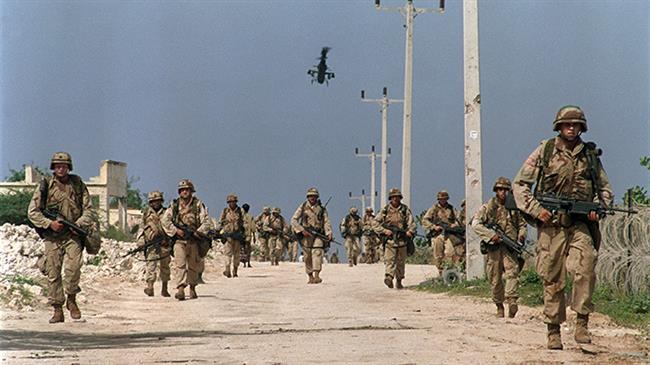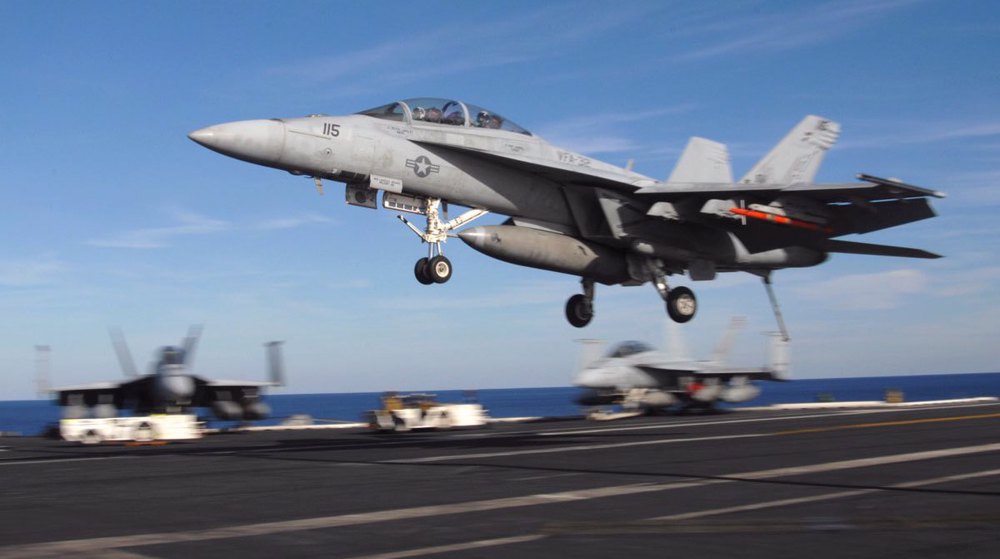No US airstrikes in Somalia for five weeks: AFRICOM
US military’s Africa Command (AFRICOM) has announced that airstrikes in Somalia have not been carried out for five weeks -- the longest halt in more than a year – due to torrential rains that have complicated the battlefield environment.
“With the rainy season there can be shifts in al-Shabab and broader activity,” said AFRICOM spokesman Col. Chris Karns as quoted by the US-based military journal Stars & Stripes. “There is always effort, not always opportunity to conduct airstrikes. There is certainly no pause.”
Somalia has been hard-hit by floods that have displaced nearly 300,000 people this spring, the United Nations has said.
According to the report, even with the five-week lull, AFRICOM has so far conducted nearly 40 airstrikes in the impoverished country this year, putting it on pace to eclipse last year’s tally of 63 air raids.
The number of US airstrikes has surged in recent years as part of Washington’s move to support Somali government forces in their long-running battle against al-Shabab militants.
The most recent US strike in Somalia took place on April 10 — around the time the rainy season in the country began — capping a series of attacks against the al-Qaeda-linked Shabab group.
This is while AFRICOM has faced criticism from human rights groups that insist civilians have been caught in the crossfire and casualties from US airstrikes are higher than have been reported.
US military officials, however,have disputed some of such reports and recently begun publishing their own quarterly reports on potential civilian casualties.
AFRICOM authorities further claim that the deadly airstrikes keep the Somali militants off-balance and confused.
“Where confusion exists, mistakes occur,” Karns said. “The armed over-watch capability very much remains an option. Where opportunity presents itself and airstrikes are the appropriate option, strikes will resume.”
AFRICOM is also involved in building up a specialized commando brigade in Somalia in efforts to assist government forces to fight off al-Shabab and reclaim territory held by the militant group.
However, the report adds that despite the airstrikes, al-Shabab has proven resilient and is still able to carry out high-profile attacks in the country and neighboring states such as Kenya, where three Americans were killed in January when a base used by US forces was ambushed.
VIDEO | Hind Rajab Foundation names Israeli war criminals vacationing after Gaza genocide
VIDEO | Australians rally for Gaza ahead of Christmas festivities
VIDEO | Attacks on Sana'a
Iran reports further drop in annual inflation rate in December
Israel indicts two settlers over suspected spying for Hezbollah
Iran: US airstrikes on Yemen war crimes, violation of international law
Yemeni armed forces down F-18 fighter jet, repel US-UK attack: Spokesman
Iran warns against US-Israeli plot to weaken Muslims, dominate region











 This makes it easy to access the Press TV website
This makes it easy to access the Press TV website